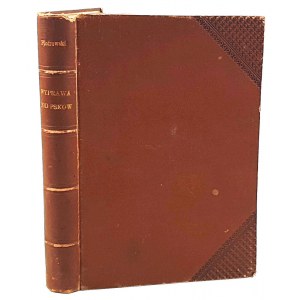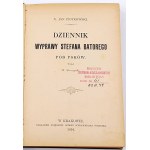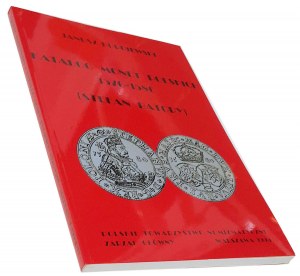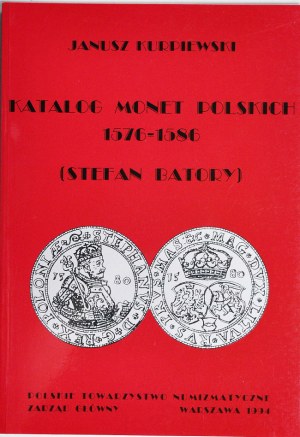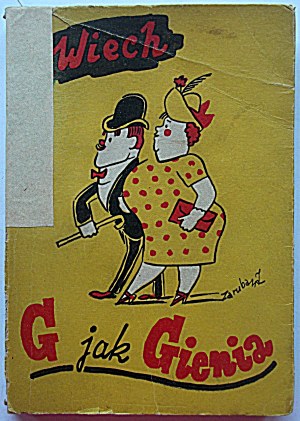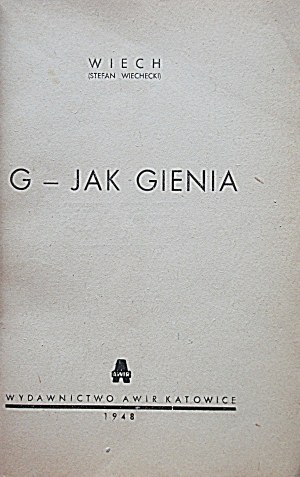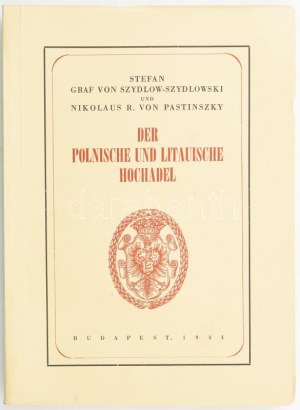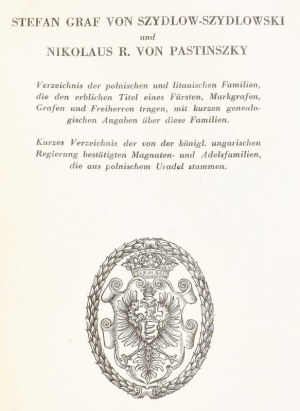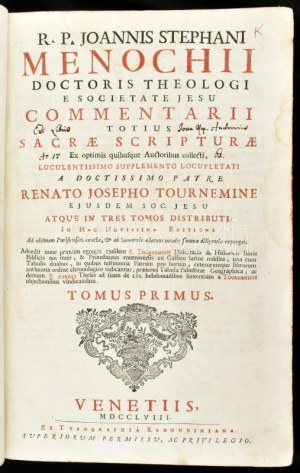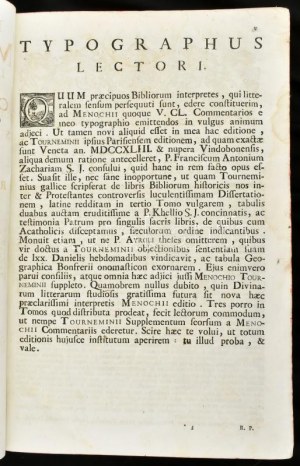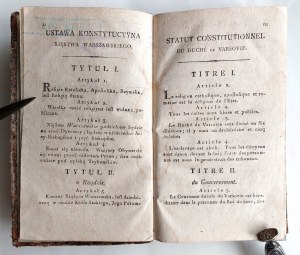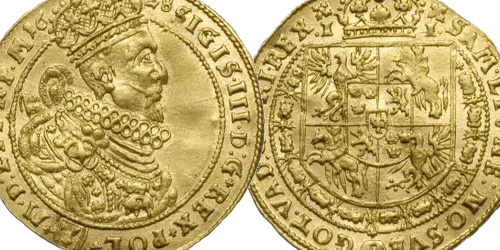PIOTROWSKI Jan
JOURNAL OF THE EXPEDITION OF STEFAN BATOREGO NEAR PSKÓW
Edited by A. Czuczyński
Cracow 1894, Nakładem Księgarni Spółki Wyd. Polskiej, str. [4], XVI, 240; format 13.5x20.5cm
[Preface - excerpt].
History has named the Great Moscow War the three expeditions of Stefan Batory against Ivan the Terrible : Polotsk r. 1579, Veliokhluga r. 1580 and Pskov r. 1581, whose ultimate goal was to regain lost Inflants. The Order of the Knights of the Sword had ruled in this land for centuries, and was similar in spirit to the Teutonic Order in Prussia. Finally dispersed under the influence of the Reformation, unable to effectively resist Moscow's possessive intentions, it surrendered in 1561 together with the Livonian states. 1561 together with the Livonian states voluntarily surrendered to Poland. The last master, Gotthard Ketteler, received Courlandia as a hereditary duchy of homage, while Inflants became part of the Polish-Lithuanian Commonwealth. However, for the actual possession of such a valuable acquisition came a long and extremely arduous struggle. For besides Poland and Moscow, the Swedish king and Danish prince Magnus also wanted this land. In this almost incessant struggle between the four northern powers, Moscow made the greatest conquering progress. Ivan the Terrible, understanding well the momentous importance of Inflants for his state, which just lacked free access to the sea and easy communication with civilized Europe, insisted on taking possession of the entire province at all costs. He had the largest part of Inflants in his possession at the time when Stefan Batory ascended the throne, especially since he was able to win Magnus over to his side, who ostensibly began to rule there as a Moscow fief. Not yet satisfied with all this, taking advantage of the opportunity, when Batory was busy taming the Danzigers, Ivan dealt the last blow to Polish Inflants in 1577. Only Reval and Riga remained in Polish possession. But this was the last triumph of Moscow. Having settled the matter with Gdansk, Batory with all his energy undertook extensive war preparations, after the completion of which he declared war on Ivan in June 1579, the three-year ordeal of which was crowned with the recovery not only of all Inflants taken by Moscow, but also of Polotsk and Velikivsk. This war, rightly called the Great War, is for many reasons the only one of its kind in the history of Polish reserves. First and foremost it was popular in the nation, let's put it bluntly, perhaps the last in the whole national sense of the word. The mighty hand of Ivan the Terrible hung just over Lithuania, the last Moscow outposts were already standing not far from Vilnius. Not only for the sake of Inflants, but for the sake of the entire Republic and the preservation of the fruits of the Union of Lublin, it was necessary to avert this danger as soon as possible. This momentousness of the moment, the necessity to undertake war and make heavy sacrifices was understood by the Polish people and the sacrifices did not shy away. It is one of the rare incidents in the history of modern Poland that the nobility at three consecutive Sejms (1578, 158o and 1581) imposed high and burdensome taxes on each other, admittedly not without procrastination, complaints and petty bargaining with the King, but all this - easily forgivable due to the little developed political sense in the wider circles of the nation - does not change the essence of the fact. Batory again deserves credit for the fact that, although he would have been more eager to turn to the Turk in order to give vent to his own desire, and the Muscovite war was fought mainly in submission to the will of the nation, nevertheless, having once resolved to it, he led it steadfastly and persistently, not even discouraged by the view of the gradually cooling enthusiasm among the nobility for this need. Batory's work also included organizing the army and drawing up a plan of campaign. The Polish army under Stefan Batory took a different form from the previous one. Previously Poles fought relying almost exclusively on horsemen, while assigning only a minor role to other weapons. Batory was the first to introduce to Poland a new way of fighting, long practiced in Western Europe. In his army, which is not numerous and rarely carries 30,000 but is a good army, the cavalry makes up only half of the force, while the main weight rests on infantry and artillery, which the King was particularly fond of. This army is composed of various nationalities: Polish cavalry and German raiders, field infantry recruited from peasants and Hungarian hajduks, Scottish riflemen, Cossacks and Tartars, but the Polish element always prevails, and the interaction of various nationalities only enhances the combativeness of the army, causing mutual competition for knightly fame. This different from the former character of the Polish army also determined the campaign plan devised and arranged in advance by Batory. Not, as before, in the open field of battle, but under the walls of the great fortresses of Moscow, not in Inflants, but in the very heart, as it were, of the great principality of Moscow. With the keen eye of a great strategist, Batory immediately understood that when the crews of [...]
HARDCOVER PERIOD CLOTH BINDING, SPINE WITH RAISED GILT AND GILT LETTERING, PAGE EDGES SPOTTED
Condition BDB-/ minor rubbing of edges and corners of binding, yellowing of covers and initial pages, own stamp on title page.



